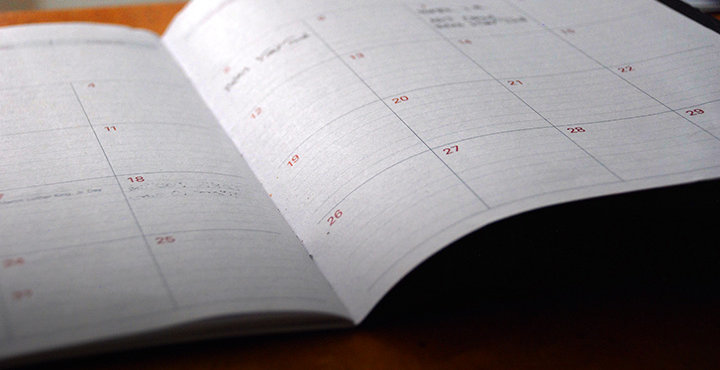Tricks to writing a book report that will get you results
We have already provided students with tips on the importance of taking notes when reading a novel for a book report. Now it's time to put those notes into action and start writing a book report.
Discover the hidden meaning
Since your notes will provide you with what you feel are the most important elements of the book, all that's left to do is make connections between the different elements. To do this, you'll want to discover how the symbols that you've noticed add meaning to the events in the novel.
Here's a relatively simple, yet effective, combination of symbolism, meaning, and events: The main character of the book discovers that the love of his life has been cheating on him. He spends all night walking broken-hearted in the rain. In this case, the rain is symbolic of sadness/gloominess, and the night may be symbolic of hardship or loneliness. How do these symbols combine with the events in the story? Easy. The main character is sad and feels alone because he just discovered that his lover has been unfaithful.
Once you've figured out the connections that you'd like to highlight in your book report, it's time to begin writing.
Writing the all-important first paragraph of your report
The opening paragraph of a book report is extremely important because this introduction describes how you plan to analyze the novel in question. The following is a list of things that our editors watch for when editing the first paragraph of a college-level report:
Introduction:
The name of the book, the author, and the date of publication should be included somewhere in your introduction. Just as you wouldn't hang out with a stranger without knowing his/her name, you shouldn't expect your professor to read your book report without first knowing a little about the book.
Subject, genre, and overview of the meaning:
The first paragraph should also contain a sentence that refers to the subject of the book, the genre, and the meaning expounded within the work. This sounds like a lot of information, but with practice you can do this all in one sentence. To clarify, let's define subject, genre, and meaning:
- Subject: The subject is what the book is about. Here's an example of a sentence that explains the subject of a book: Tom Clancy's Rainbow Six relates the experiences of an international group of covert operatives that neutralize a European terrorist plot.
- Genre: This is the type of book you're reading. The summary on the back of a book will often tell you the genre in case you're not familiar with the categories. The book mentioned in the previous point could be classified as a thriller.
- Overview of the meaning: You don't have to get in-depth in the first paragraph, but you should let your reader know that your book report isn't simply a summary but also a treatment of the major themes discussed in the work. Here's an example of a sentence that gives a bit of information on the deeper meaning in a book: The novel raises some important questions regarding freedom of information, ethics, and government secrecy.
If we put all of the above information together, we have a sentence that gives a good overview of the information we plan to include when writing a book report: In the 1998 thriller Rainbow Six, Tom Clancy raises some important questions regarding freedom of information, ethics, and governmental secrecy as he describes the experiences of an international group of covert operatives that neutralize a European terrorist plot.
Keep your ideas structured
Once you've written a solid introduction, it's time to get to the meat and potatoes of your report: the summary and critical analysis. Here's a quick look at what our essay editing experts look for in each of these sections:
- Summary: A good rule of thumb to remember is that the summary should be no more than 1/3 of the report's length. This means that if you're writing a three-page report, your summary section should be no more than one page. In this section, you'll want to go over the main characters, events, and settings (without relating them to symbolism/meanings).
- Critical analysis: This is where you connect the events/actions/settings to the symbolism/meanings that you've gathered from the work. In this section, it's a good idea to remember that any assertion you make should be backed up with information from the book itself (either paraphrasing or direct quotations). You should also comment on the style of writing in this section and how it contributes to the overall feeling/meaning of the book. This section is the most important and should take up about 2/3 of your report.
Concluding thoughts
The concluding paragraph of a book report is where you summarize the ideas you've presented in the analysis and offer your opinion of the novel. Vague phrases such as "I liked this book" or "The book was good" should be avoided.
Any connection that you can make to real life may be helpful in this portion of the report. For example, here's a good opinion sentence using our previous Tom Clancy example:
Although this book was written in 1998, I argue that, given the U.S. political environment of the early 21st century, Clancy's comments regarding the ramifications of terrorism and the ambiguity of government secrecy are more relevant than ever.
Solicit a second opinion before submitting your book report
After you've finished writing your book report, you may be tempted to immediately submit it to your professor for grading. We recommend resisting this urge! Instead, ask a friend or classmate to review your work for any inconsistent content or awkward phrasing. Better yet, submit your document to our essay editing service and have a professional assess your ideas.
Image source: Kaboompics/Pexels.com









